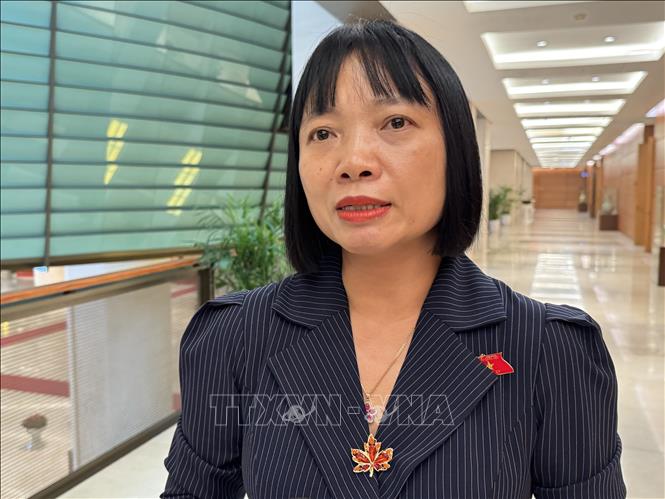
However, for the campaign to be truly effective, on the sidelines of the National Assembly , National Assembly deputies said it is necessary to organize and implement it in the right spirit of digitalization, applying modern technology and avoiding causing trouble for people in the process of collecting and updating information.
Delegate Nguyen Thi Viet Nga (Hai Phong Delegation) affirmed that the 90-day "clean up, get rich" campaign in 2025 is a correct, necessary policy and has a particularly important meaning in the national digital transformation process, towards building a unified, transparent land database and serving the people better. This is an important preparatory step to operate the National Land Database, one of the six foundational databases of the Digital Government .
However, the problem lies in the way it is implemented in some places. “When the government requires people to submit a photocopy of the Land Use Rights Certificate, which is a copy of a document that the State agency has issued and is storing, it is not only troublesome and time-consuming, but also shows a deviation in the approach to digital transformation,” the delegate emphasized.
According to the delegate, the nature of digital transformation is that data must be shared, connected and reused within the state management system, not "transferring the procedural burden from one agency to the people". When people have to print, photocopy and re-authenticate documents that the State is capable of accessing, the spirit of "putting people at the center" of administrative reform and digital transformation has not been properly implemented.
In principle, the government is the place that holds and manages all original land records, including paper and electronic data. If the data is not synchronized, the right solution is not to ask people to provide it again, but to review, standardize and connect available data sources between sectors, from environmental resources, justice, police, tax to banking. Mobilizing people to provide information should only be applied in cases where the data is really missing or there are signs of discrepancies that need to be verified.
Delegate Nguyen Thi Viet Nga also noted that the Government has clearly directed that all “data cleaning” activities must be associated with technology applications, ensuring safety, security and not causing inconvenience to the people. Therefore, if any locality still performs manual, administrative technical tasks, it needs to be reviewed and adjusted promptly.
According to delegate Nguyen Thi Viet Nga, from a broader perspective, the campaign to “clean and enrich land data” is not only a technical task, but also a test of the data management capacity of the public authority system. A modern system cannot operate based on paper photocopies, but must be based on electronic data that is synchronized, accurate and can be shared between agencies. When data is “cleaned” in the true sense, people will not need to carry thick files every time they do procedures; and state agencies will also significantly reduce costs, human resources and errors.
Therefore, in order for the campaign to achieve its real goals, delegates believe that it is necessary to thoroughly understand the principle of not letting people become “data cleaners” for the State. Any requests that arise need to be carefully considered to avoid creating additional administrative procedures that are contrary to the spirit of reform and digital transformation.
“With this, after 90 days, we will not only have a “cleaner” land database, but more importantly, a digitalized, efficient and more people-friendly administrative apparatus,” said delegate Nguyen Thi Viet Nga.
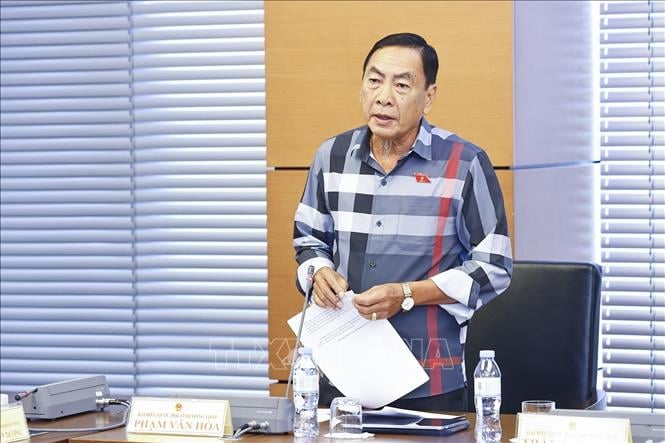
Delegate Pham Van Hoa (Dong Thap Delegation) also said that although land management has made a lot of progress, it still has shortcomings, especially in data standardization. “In my opinion, requiring people to resubmit documents for agencies to update data needs to be reconsidered. Data on red books has been issued and archived by management agencies in advance. If land officials take the time to review the issued records and lists, they can completely grasp detailed information. Requiring people to resubmit not only wastes time and effort but also poses a risk of losing important documents,” the delegate said.
According to the delegate, instead of making people print, photocopy, and re-authenticate documents, which is both time-consuming and potentially leads to the loss of important documents, the management agency should exploit, compare, and update from the existing archives. Although there may be small errors, this difference is not large and will be significantly reduced when the data system is gradually completed.
Previously, Hanoi issued Plan No. 252/KH-UBND on implementing the campaign "enriching and cleaning up the national land database". According to the plan, the four key contents include completing the existing land database, building residential land and housing data in places without a database, synchronizing - connecting - sharing unified land data, and operating the provision of online public services associated with land plot identification codes, integrated with national digital addresses. The campaign will take place in 90 days, with specific timelines from mid-September to the end of November 2025.
However, in some localities, the implementation method is still heavily administrative. In Vinh Tuy ward (Hanoi), Ms. Thu received a notice requesting to submit a photocopy or photo of the Land Use Rights Certificate and Citizen Identification Card in early October. Ms. Thu shared: “Land Use Rights Certificate and Citizen Identification Card are both issued by State agencies, and the data has been stored in the management system. So why are people required to submit copies? If personal information and assets are leaked, who will be responsible?”
Speaking to the press, Mr. Mai Van Phan, Deputy Director of the Department of Land Management (Ministry of Agriculture and Environment) said that data collection is an important step in the 90-day peak campaign to enrich and clean up the national land database, which is being deployed nationwide by the two ministries and localities from September 1 to November 30, 2025.
Regarding the request to collect copies of red books in the campaign, Mr. Mai Van Phan said that the registration and issuance of red books has gone through many stages with different regulations. There was a period when the red book only recorded the name of the household owner, without the ID number, or was only based on a temporary map... Meanwhile, citizen identification cards were also issued through many different periods: From 9-digit ID cards, 10-digit ID cards to the current 12-digit chip-embedded citizen identification cards. In many cases, land users arbitrarily transferred, changed the purpose of use, or did not complete inheritance procedures, leading to information and data not being synchronized. Not to mention, in some localities, natural disasters, especially floods and flash floods, damaged the records and documents for issuing red books, making it difficult to compare and verify information.
According to Mr. Mai Van Phan, collecting copies of red books is necessary to review, compare, clean and enrich land data. This is not only the task of the management agency but also requires the participation of the entire political system and the people.
Source: https://baotintuc.vn/thoi-su/lam-sach-lam-giau-du-lieu-dat-dai-phai-dung-tinh-than-chuyen-doi-so-20251022135832639.htm


![[Photo] Prime Minister Pham Minh Chinh chairs meeting on nuclear power plant construction](https://vphoto.vietnam.vn/thumb/1200x675/vietnam/resource/IMAGE/2025/10/22/1761137852450_dsc-9299-jpg.webp)





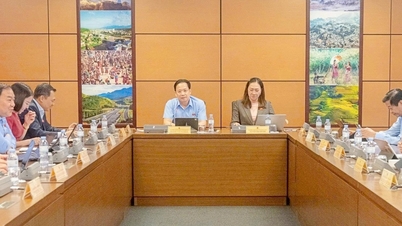

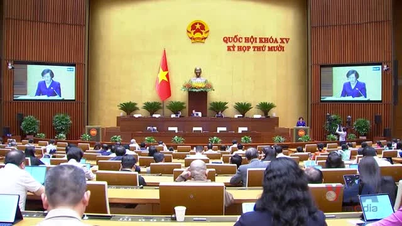

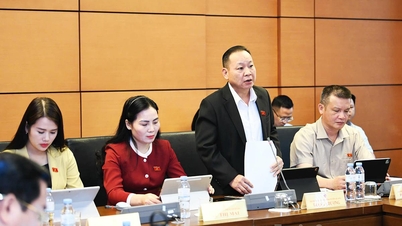




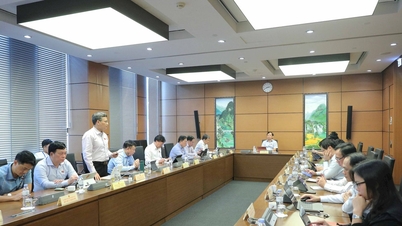
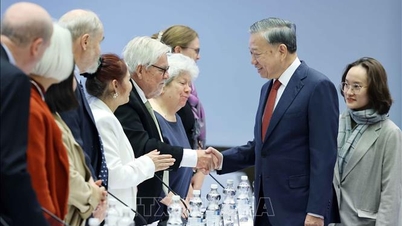

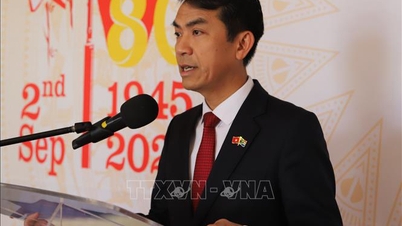


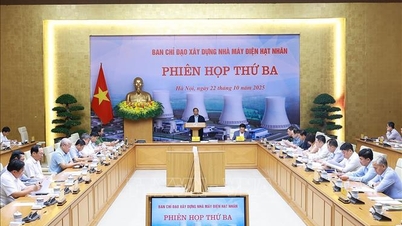






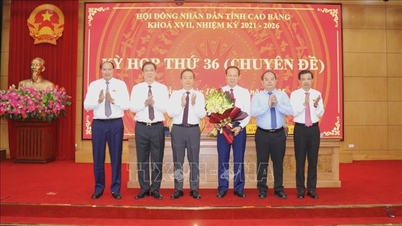
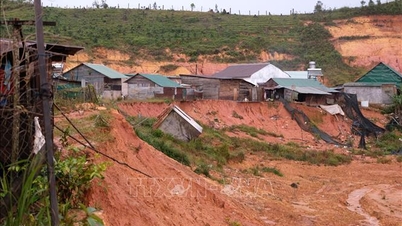












































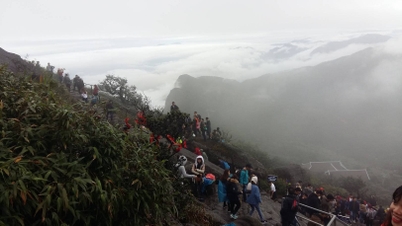



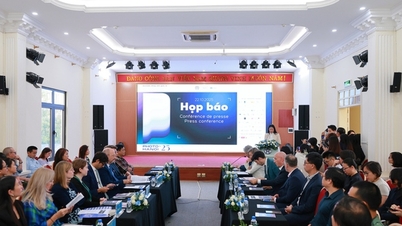
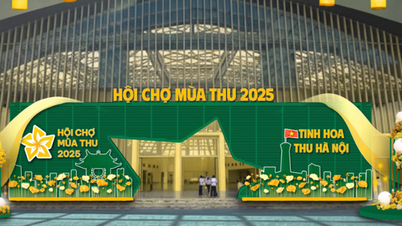
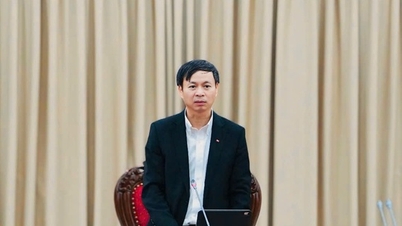


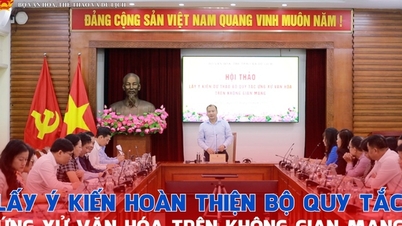
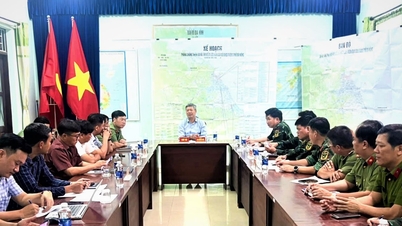

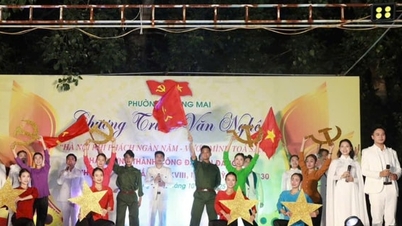

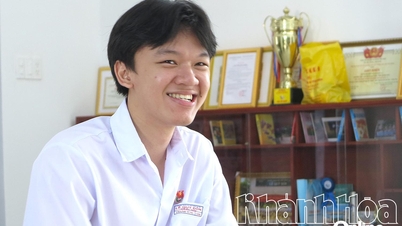


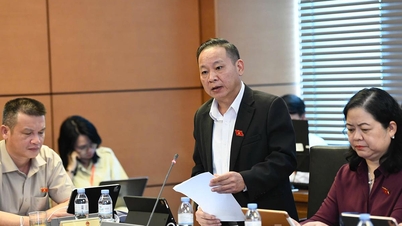















Comment (0)